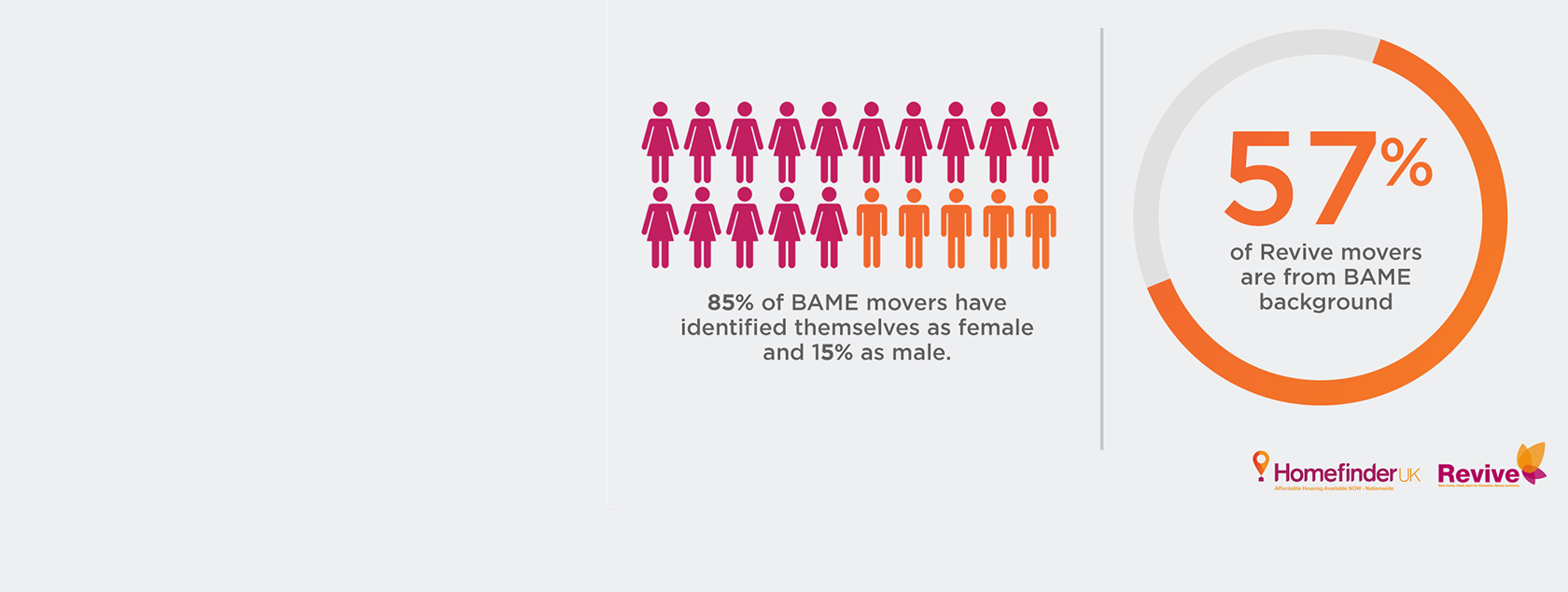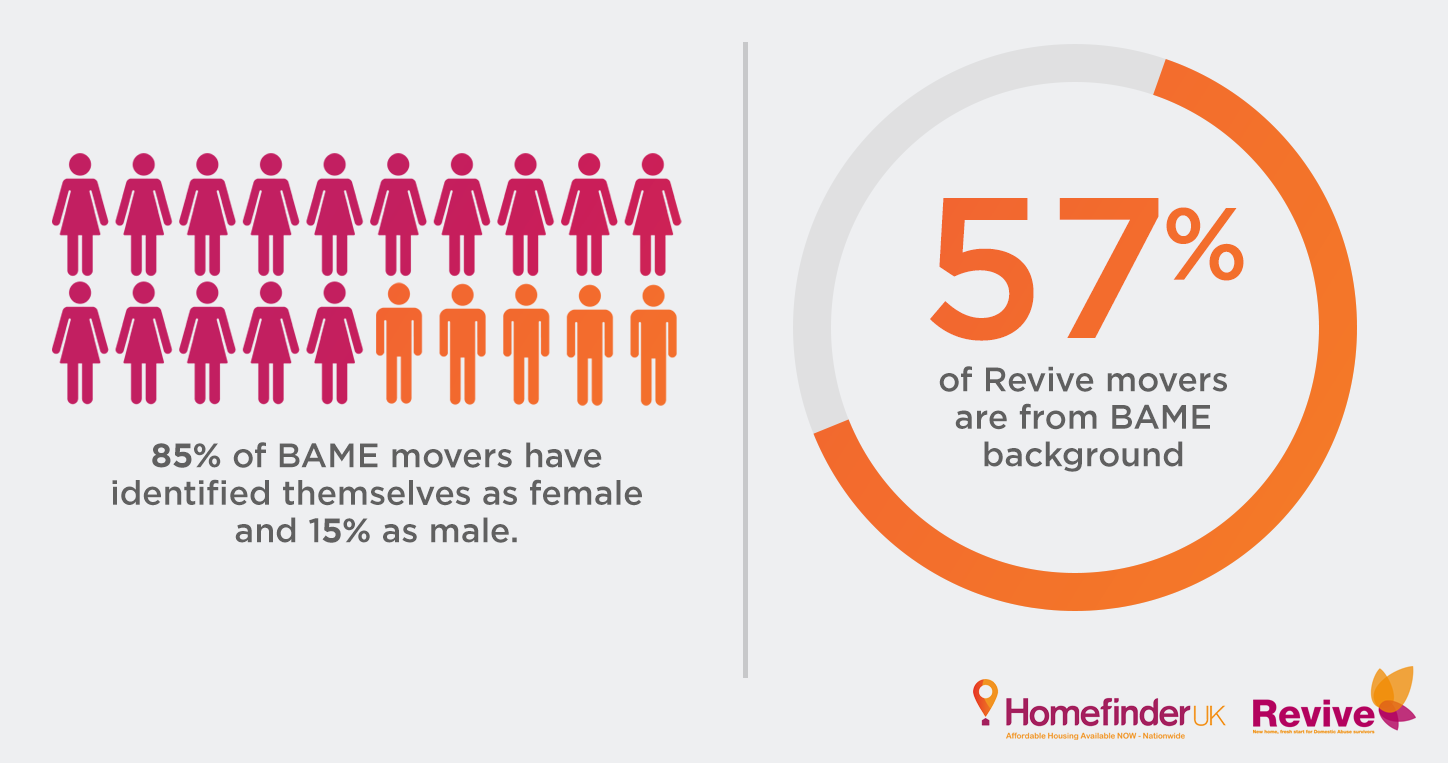
Revive report: 60% of movers come from a BAME background

Our relocation service specialised in domestic abuse, Revive, rehoused over 60 domestic abuse survivors in just under 18 months. Most of the movers are from the BAME community and have experienced, aside from domestic abuse, different levels of racism and prejudice. Some feel that these become a barrier when seeking support from other services.
Our recent flash report warns that there is still a lack of understanding from relevant statutory and voluntary agencies, regarding the concerns and needs of DA survivors from BAME background.
Homefinder UK handles thousands of calls, a majority from BAME users, who are looking for move-on housing options. Here are the main barriers experienced by these BAME users when accessing housing and specialist services:
- Limited access to translators
- Cultural background not considered or misunderstood
- Religious practices and rituals not acknowledged
- Assumptions made based on the survivor’s age and ethnicity
- Prejudices around marital backgrounds
- Insufficient support around socio-economic factors, particularly to overcome poverty
The access to housing is a barrier on its own. According to the latest Women's Aid report, 68.4% of women indicated that concerns around future housing were a barrier to leaving an abusive relationship. With the current housing crisis, many have to choose between staying in an unhealthy relationship or becoming homeless, while also considering the impact on children: 2 out of 3 of households rehoused through Revive required at least a 2-bedroom flat.
Applicants from BAME background unfortunately also have to overcome additional barriers. These include concerns that some statutory and voluntary services do not take applicant’s cultural identity into consideration when making referrals – often jumping to stereotypical judgements. For instance, one applicant initially struggled to leave her abusive husband. This was because they were introduced (engaged) when she was 6 years old. He was 15 years older than her and he felt that he owned her. Added to this, in their country of origin, you remained married despite physical abuse. Revive staff had to explain to relevant decision making non-BAME workers the need to be patient regarding the applicant’s conflicted position regarding her marriage and to not take prejudiced positions which could have led to a property offer being withdrawn.
In another case, it was assumed that a young black woman was a member of a gang – rather than being a college student.
Brenda Fraser, Homefinder UK and Revive manager says: “We see applicants from all types of backgrounds, religions and cultures and acknowledge that English is often their second language. We use language skills of our multi-ethnic staff or bring in translators from other agencies to effectively communicate with all applicants. We also see quite a few men experiencing domestic abuse, and in fact, 15% of those housed were male applicants. We are empathetic to the trauma experienced by all applicants, we don’t discriminate and pride ourselves in the caring and professional way we work, allowing for a faster and easier escape from an abusive relationship.”
Click here to read our flash report.
For the full press release, contact [email protected].
Published on the media:
‘WE ARE NOT BLACK WE ARE INVISIBLE’ - Abused BAME women reveal their struggles with the criminal justice system (it will open a PDF document)
Domestic abuse ‘move on’ service reports that 60% of movers come from a BAME background
